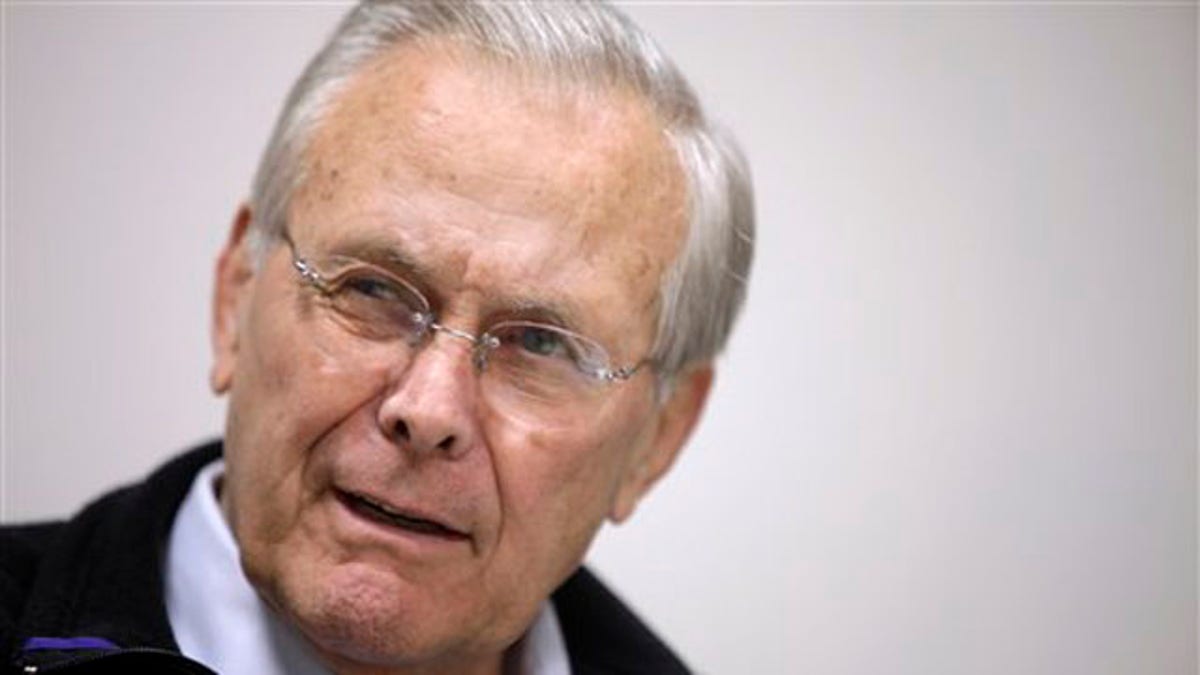
In this 2011 photo, former Defense Secretary Donald Rumsfeld is interviewed at his office in Washington. (AP)
Former Defense Secretary Donald Rumsfeld's memoir is already making waves, though it's not due out until next week.
The 800-page book, "Known and Unknown," drew a pre-emptive retort Thursday from the American Civil Liberties Union, which objected to Rumsfeld's reported depiction of the Abu Ghraib prison scandal as the actions of a few rogue soldiers. The complaint signals that the release of the book from arguably the most controversial member of the George W. Bush administration will rekindle old rivalries in the weeks ahead.
"Mr. Rumsfeld's claim that the abuse at Abu Ghraib was isolated and aberrational is demonstrably false," Jameel Jaffer, ACLU's deputy legal director, said in a written statement.
"Government documents show that the methods used at Abu Ghraib were the same ones Mr. Rumsfeld approved, and that the abuse of prisoners in Defense Department custody was systemic. ... This effort to rewrite history is shameful."
Rumsfeld's office is not commenting on the book until its Tuesday release date. But according to early reports, he devotes much of the autobiography to defending his tenure in the Bush administration and his handling of the Iraq war.
The New York Times reported that Rumsfeld described the Abu Ghraib prison abuses as the actions of rogue soldiers who went outside approved policies. Rumsfeld also said he regretted not forcing Bush to accept his resignation offers after the scandal broke.
"Abu Ghraib and its follow-on effects, including the continued drum-beat of 'torture' maintained by partisan critics of the war and the president, became a damaging distraction," he wrote. "I regret that I did not leave at that point."
Rumsfeld did not leave until after Republicans were crushed in the 2006 congressional elections. He has been mostly silent since then.
Though the ACLU accused Rumsfeld of rewriting history with his latest account, the ex-Pentagon chief brought former President Bill Clinton to his defense in his book, according to Politico.com. According to the article, Rumsfeld wrote that after the scandal unfolded in 2004, Clinton told him "no one with an ounce of sense" thinks he knew about the prison abuse in Iraq.
Rumsfeld also used his book to criticize some of the inter-agency squabbling in the administration and to defend the Iraq war overall as worth fighting, despite its flaws in execution. According to the Times, Rumsfeld writes that Bush was looking at possible military plans for Iraq within days after the Sept. 11, 2001, terror attacks.




